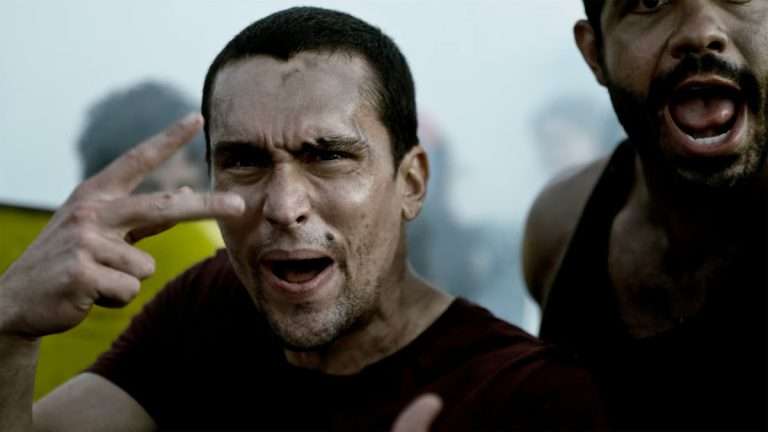Lucky Hank (Season 1) Episode 1: Bob Odenkirk rose to fame with a single episode from Breaking Bad. While it was supposed to be a one-and-done deal, Vince Gilligan saw the potential in the character and the actor to make it stay for a longer period. With its spin-off, Bob got an opportunity to dig deeper beneath the skin of his salesman-ish lawyer character. His performance in Better Call Saul became a phenomenon.
The new AMC+ series – ‘Lucky Hank’ starring Bob in the central role, is based on the novel Straight Man by Richard Russo. The show is developed by Paul Lieberstein, commonly known as Toby Flenderson from The Office, and Aaron Zelman. There’s another treat for The Office fans – Oscar Nuñez is also a part of the cast.
Despite this varied proven talent, Lucky Hank stands on its own. Its first episode promises a brilliant black comedy, primarily about a middle-aged white man going through a mid-life crisis. However, it is about so much more than that. Let’s find out what happens in the episode, which obviously means that there are spoilers ahead.
Lucky Hank (Season 1) Episode 1 Recap:
William Henry Devereaux, Jr., aka Hank (Bob Odenkirk), is an English department chairman working at an underfunded Railton College in the Pennsylvania rust belt. One day, while one of his students – Bartow (Jackson Kelly)- reads his story, Hank remains lost in his thoughts. You can sense his ennui right from the moment the camera settles on his face. He stops Bartow from speaking midway and asks students to share some feedback. Lester (Jason Sakaki), an over-appreciator new-generation kid, says he loved it.
Hank, however, wants to get some constructive criticism instead. However, no one pitches in. Bartow asks Hank to share what he thought of it. Hank tells him to go back to what he said about his previous work. However, Bartow’s insistence makes Hank share his honest feedback. Hank criticizes how Bartow continues to use structureless sentences and keeps switching between the thoughts of both his characters. Bartow justifies it and compares himself to an old English writer.
Hank finds it absurd that Bartow compares his incompetence to the iconic writer’s Middle English writing limitations. Bartow gets offended and insults Hank. He takes a dig at Hank’s lack of popularity and how he isn’t worth giving advice to others. All of it makes Hank break down into a rant where he ends up calling this college ‘mediocrity’s capital.’ More than offense, his pent-up anger for his unfulfilled potential becomes apparent through it. One of his students records his outburst without his notice.
The next morning, Hank sees an article published about his earlier offensive comment. His friend, Tony Conigula (Diedrich Bader), shares it ironically, saying that he can’t stop smiling. Later, he sees news about his father getting an award, and he isn’t the least bit happy about it. His wife, Lily (Mireille Enos), tells him about her student Calvin. As a school principal, she must handle the conflict between Calvin’s teacher and his mother. These two well-paid people have a chat about their misery. She calls out his solitary misery. He thinks that everyone’s miserable and that most of adult life is filled with misery.
Later at school, Hank walks through the corridor among the students and staff, who have read the news about him. Bartow sits by his office door, waiting for him to have a man-to-man chat. He gets emotional about feeling hopeless as a writer due to their last interaction and shares how hopeful he was to be a storyteller since he was a kid. While Hank accepts that he was uncareful with his words, he refuses to share that in writing, as Bartow expected from him. He gives a middle finger instead.
Later, Hank enters a room full of middle-aged teachers. Gracie DuBois (Suzanne Cryer) is pissed at Paul Rourke (Cedric Yarbrough) since something he said offended her. Grace calls Hank the reason for Paul suddenly feeling free to speak his mind without others’ consideration. She takes out her anger on Hank for insulting their college and his colleagues. Furthermore, she expects his apology and his respect for her book, even if it is based on an extremely niche expertise. However, besides her and the French professor, Hank’s remarks don’t seem to have outright upset anyone. They do not take themselves or their work seriously.
Gracie, however, isn’t self-aware like them. On the other hand, Hank’s anger is due to a heightened sense of self-awareness. While making her grand remarks against him, she ends up hitting him with her spiral-bound notebook. It injures his nose. While cleaning that bloodstain, his secretary – Rachel (Ellen MacNevin), tells him about Dean Rose’s call, who wants to see him about what happened. Hanks goes there to find Dean consoling Bartow and his parents for what Hank did. Afterward, they meet, and Dean asks Hank to apologize to Bartow and get rid of the issue. Hank does not agree to do it.
Meanwhile, Lily goes to school, where she has to decide whether to expel undisciplined Calvin or not. His mother & his teacher passionately argue for their viewpoints. Lilly interrupts the flow of their argument to share chocolates with them. While they bite on it, she gives a diplomatic verdict. She returns home and talks with Hank about him being tenured for refusing to apologize. He sees that as him being indispensable. Then they get to the topic of his father’s award. Hank is angry that he learned about it through the newspaper and not from his father. He masks that anger under his general brand of humor.
Hank does not think anyone deserves anything. So, teasing Gracie earlier in the staffroom for her lack of accomplishments does not seem unfair to him. He is also unhappy with how the younger generation of his daughter – Julie (Olivia Scott Welch), who takes happiness for granted and feels entitled to it. They do not want anything bad happening to them, Hank says. More than a remark, it rather comes from a place of him not receiving warmth from his father. Under the guise of resilience, it is his pent-up anger.
Julie comes home and asks Hank to fund her partner’s career in his passion. Hank shuts her off, saying that he needs to focus on earning money instead as an adult. Later, at the college, Gracie meets Dean to ask him to get Hank off his chairman seat to make him lose his authority over its matters. She cannot take Hank’s smugness anymore. So, after her word with Dean, she takes Teddy (Arthur Keng) and June (Alvina August) on her side in exchange for an enticing favor.
Later at night, Billie (Nancy Robertson), drunk dials Hank. She asks him whether he signed her daughter’s recommendation letter. Afterward, she rambles about Hank’s parental issues and his conflicting relationship with his father. Hank does not mind her insults one bit. She feels bad that he lets her continue to speak like that. That’s when she blurts out that he will be de-chaired.
In sync with his recent outburst, Hank gets happy about this news since it would free him from an institution of mediocrity. He also asks Lily to see if she can still get the NYC job she wanted. He dreams of escape from the dreadful space. On the other hand, she sees his openness toward her ambition as him acknowledging her wishes. Yet, there is no sugar-coated communication. They are matter-of-fact in their manner of speaking despite their mutual infatuation.
Lily understands Hank’s worry about bumping into his father in this city. She wants Hank to be emotionally ready for that possibility. She even jokes about how they met Catherine Keener twice. While it works as an inside joke between them (referring to his possible interest in Keener), it also shows how they might bump into his father just as easily as they bumped into a popular actress such as Keener. Hank just lets that topic rest for the moment. They will always have time to ruminate over their worries anyway, right?
The next day, Hank gets a call from his father’s secretary – Marnie Cole, to tell him that his recent wife, Stephanie, has left him. Marnie expects Hank to take care of him. Hank does not want his father entitled to his attention when he roams around, acting as he pleases. He cuts the call making it clear that he does not consider his father a part of his family.
After having a brief word with Dean, Hank walks up to the staffroom to face the verdict for de-chairing. Emma (Shannon DeVido) believes that there are more pressing issues in the world than wasting time in activities just to cater to their egos. But due to Gracie’s insistence, she proceeds with her duty. He soon gets fired from his chair and walks back with a smile.
Later at night, Lily shares the news that she has gotten her desired job in NYC. Her over-the-moon happiness sinks when Hank conveys that he does not want to move out of the town. She storms out, angry, for a run. Even then, he resorts to making a joke. It infuriates her even more. The next day, Hank goes to his department office and continues with his honest criticisms. He finds several flaws even in Bartow’s letter. However, he does not feel anything for a kid who feels entitled to an apology by him.
Lucky Hank (Season 1) Episode 1 Ending, Explained:
At her school, Lily gets a backlash from a teacher for not expelling Calvin and for pacifying the situation. You saved nothing, he says. She remains dumbfounded. Back in Hank’s college, the staff needs to find a replacement for him since he gets de-chaired. Everyone shares their vote, and, in the end, ironically, Hank gets the most (2) votes. So, he is reassigned to his previous position through a great game of fate.
To take the stress out of his mind, he goes to play racquetball with Tony and has a senseless, friendly conversation. He eventually vents about how he feels about his father’s retirement and about his growing age. He feels regret ‘for all that he didn’t have’ all these years, including the feelings of rejection or neglect that he would have been subjected to if his father hadn’t left him.
Hank returns home not to regret leaving the woman who always stood by him alone. He lets her know that he has been reappointed as the chair for three more years. However. she isn’t as amused as him. He is still engulfed in his misery, leaving her wishes ignored. Hank is a case of ‘hurt people hurt people.’ But it is more about the emotional hurt caused by his father, and his refusal to express it with anyone has made him into this prickly creature, unable to resonate with him.







